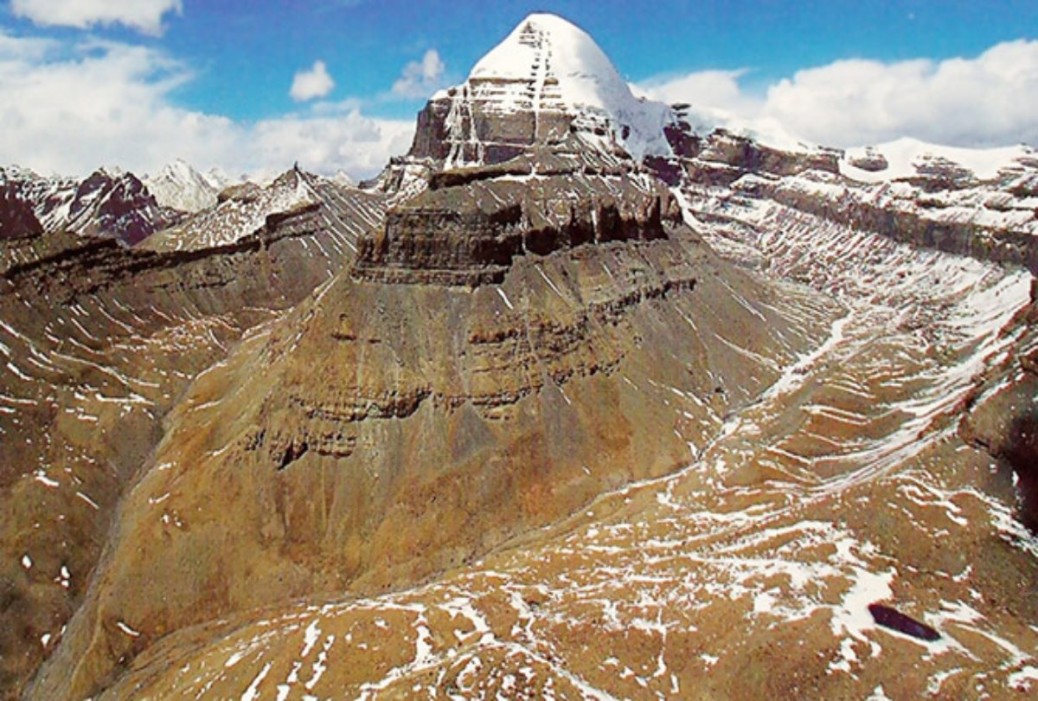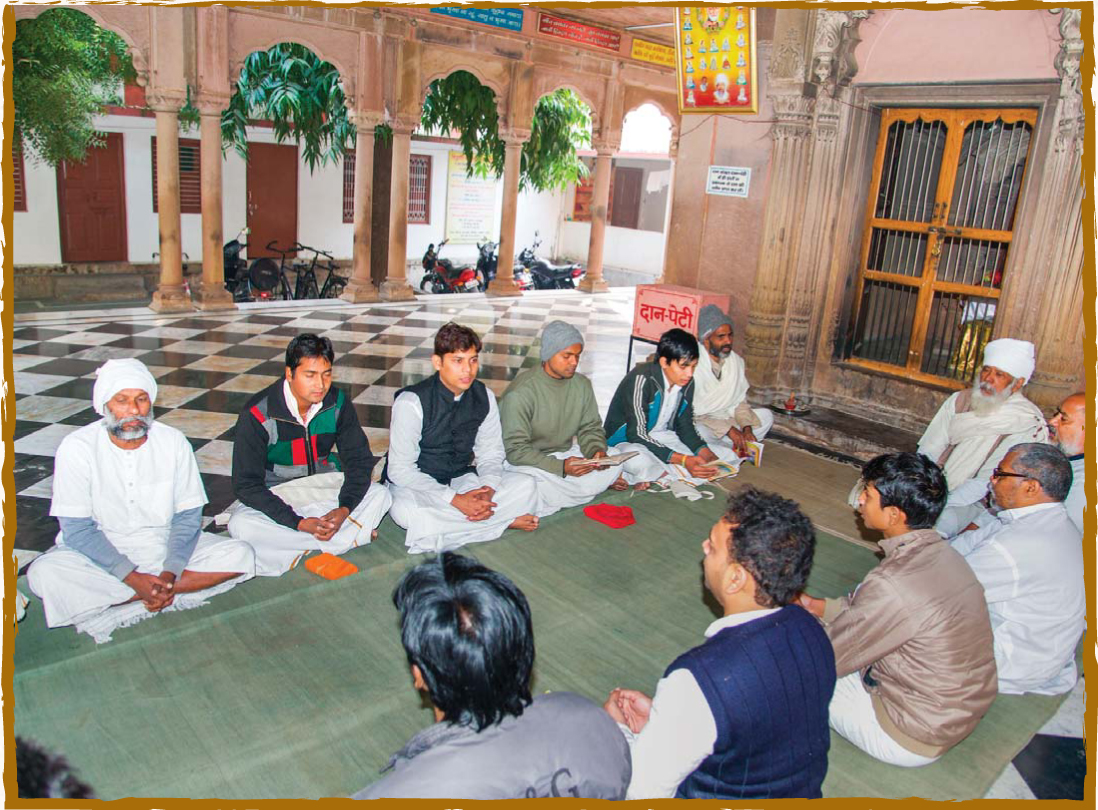Every moment God is seeking you as much as you are seeking him. You may not be seeking him consciously. You may be seeking him under different names. You may be seeking him as bliss. You may be seeking him as happiness, joy. You may be seeking him as forgetfulness, absorption. You may be seeking him as music, as love. You may be seeking him in different ways, under different names. Those names do not matter; you are seeking him – knowingly, unknowingly. And one thing you have to understand he is also seeking you. Because unless the search is from both the sides, the meeting is not possible.
The whole is seeking the part as much as the part is seeking the whole. The flower is seeking the sun as much as the sun is seeking the flower. The lizard is not only sunning, the sun is also lizarding. It is a connected whole. It has to be so, otherwise things will fall apart. It is one piece, it is one harmony, it is one dance.
All gestures, all movements, are connected together. They have to be; otherwise they will fall apart and the existence will no longer be existence – it will disappear.
Let me tell you through a parable. Consider the following parable: Man, let us say, is climbing a mountain – because in the valley he has lived and in the valley he has dreamed and in the valley he has thought and imagined, but there has been only frustration. In the valley he has remained empty, unfulfilled, so he thinks that at the top of the mountain is God. Valley he has lived. The top remains far away; shining in the sun it remains an attraction. The far away always calls you, invites you. To look at the close is very difficult; not to look at the far away is also very difficult. To be interested in that which is close is very difficult; to be not interested in that which is very far is also very difficult. The far away has a tremendous attraction, and the top of the mountain goes on calling you.
And, when you start feeling empty in the valley, of course, it is logical to think that the one you are seeking does not live in the valley. He must be living at the top. It is natural for the mind to move from one extreme to the other, from the valley to the peak.
At the top of the mountain man thinks is God, down in the valley are the cares and concerns of human life, all the troubles of love and war. In the valley you go on gathering anxiety, in the valley you go on gathering dust, in the valley, by and by, you become dull and dead. The valley looks like a graveyard. One wants to get out of it. One starts thinking of freedom, moksha, of how to get out of the imprisonment the valley has become – how to get out of attachment, love; how to get out of ambition, violence, war; how to get out of the society, the very society which gives you the opportunity to be worried, in fact forces you towards anxiety and anguish.
One starts thinking, but this is an escape. In fact you are not going to the peak; you are going away from the valley. It is not that the peak has called you. In fact it is the valley which is pushing you. You are still pushed by the valley; and pushed by the valley you can never be free. It is not that you are going on your own. You are being expelled. The valley is creating a situation in which you cannot live there anymore. Life becomes too much. A moment comes to everybody’s life when it becomes too much, the world is too much, and one starts escaping.
Man starts escaping towards the peak. And now comes the most important part of the parable: God, on the other hand, is coming down the mountain. Because, let us say, he is fed up with his purity and aloneness.
Man is fed up with the crowd, with the impurity; God is fed up with his aloneness and purity.
Have you ever watched? You can be happy alone very easily. To be happy with somebody else becomes very difficult. One person can be happy very easily, very cheaply there is no cost to it. Two persons’ together, it becomes very difficult to be happy. It is easy to be unhappy now – without any cost, very cheaply. And if three persons are together, it is impossible to be happy – at no cost is happiness possible.
Man is fed up with the crowd, nowhere to move, nowhere where you can find a space of your own, always onlookers and onlookers – you are always on the stage, always performing – and the eyes of the crowd watching you. No privacy.
By and by, one gets fed up, bored.
But God is also bored. He is alone, pure, but purity itself becomes boring when it remains and remains and remains.
God is coming down towards the valley; his desire is to plunge into the world.
Man’s desire is to jump out of the world, and God’s desire is to plunge into the world. Man’s desire is to be God, and God’s desire is to be man.
There is a truth of withdrawal and there is a truth of return. Man is always withdrawing and God is always returning. Otherwise the creation would have stopped long ago, if God was not returning continuously. It must be a circle. The Ganges goes on falling into the ocean, and the ocean goes on rising into the clouds and goes on falling on the Himalayas – back to the Ganges, and the Ganges goes on flowing. The Ganges is always withdrawing, and the ocean is always returning. Man is always seeking God. God is always seeking man; this is the whole complete circle. If only man was going towards God and God was not coming, the world would have stopped long ago. It would have stopped anytime because one day all men will return and God will not be coming back the world will disappear.
But the peak cannot exist without the valley; and God cannot exist without the world: and the day cannot exist without the night; and life is impossible to conceive of without death.
It is very difficult to understand this, that God is a constant returning, man a constant withdrawal – man a constant renunciation, sannyas, and God a constant coming back to the world, a celebration.
There is a truth of withdrawal and there is a truth of return. Separately they are both half and partial: together they become the truth, the whole truth.
Religion is a withdrawal, but then it is half. Religion should also be a return, then it is whole. Religion should teach you how to go into yourself and religion should also teach you how to come back again because somewhere in between the valley and the peak God and man meet. If you bypass God…. And there is every possibility because if you are going up the hill and he is coming down the hill you won’t even look at him. There may even be a condemnation in your eyes.
How can this be God who is going back to the valley? You may even look at him with the eyes of “holier than you.”
Remember this Whenever God will meet you, you will see him coming back to the world; and you are leaving the world. That’s why your so-called mahatmas, your so-called saints, never come to understand what God is. They go on talking about a dead concept of God, but they never know what God is because they will always miss somewhere on the path you will meet him, but your sense won’t even look at him. He will look like a sinner; he is going back to the world.
But if they reach to the top they will find it empty. The world is too full; the top is too empty. They will not even find God there, because he is always returning. He is always coming, he is always creating. He is never finished. The creation is an endless process. God is not an entity. He is a process, the process of returning.
If you can meet him on the way and you can recognize him, only then is there a possibility. Then you will drop the idea of going to the peak… you will start returning. All great ones who have understood, first have gone into withdrawal, and then they have returned to the world, back in the marketplace with all their meditation in a tremendous flowering. But they have come back to the world.
They have understood the point. They have understood the point of wholeness, of holiness. They have understood the point that the outer and the inner are not two and the creation and the creator are not two and matter and mind are not two – that the sacred and the profane are not two. They are one. All duality has disappeared for them. This is what I call advait, nonduality – the real message of Vedanta, the real message of yoga.
It is very natural to get fed up with the world. It is very natural to seek freedom, nothing special in it.
It happened: Mulla Nasrudin was celebrating his twenty-fifth wedding anniversary, and he gave a big party for all his friends. He invited me, too. But the host was nowhere to be seen. Finally, I found him in the library drinking brandy and staring into the fire.
“Mulla,” I said, “you should be celebrating with your guests. Why are you sad and what are you doing here!”
“Why am I so sad?” He explained, “When I had been married for five years, I had decided to kill my wife. I went to my lawyer and told him what I was going to do. He said if I did it I would get twenty years in prison. Just think,” said Mulla to me, “tonight I would have been a free man.”
It is very natural. The world is too troublesome. It creates so much anxiety: it creates so many imprisonments. To seek freedom, to inquire about it, is natural – nothing special in it. It becomes special when you have understood, when you come from the peak back to the valley with a new dance in your step, with a new song on your lips, with a totally new being – when you come absolutely pure into the world of impurity, unafraid because now you are incorruptible.
When you come back to the prison on your own accord, voluntarily, when you come to the prison as a free man and you accept the prison, back to your cell; now it is a prison no more because freedom cannot be imprisoned. Only a slave can be imprisoned. A free man cannot be imprisoned – he can live in the prison, and free. And unless your freedom is that powerful, it is not worth it.
Tags: God Is A Process Patanjali










